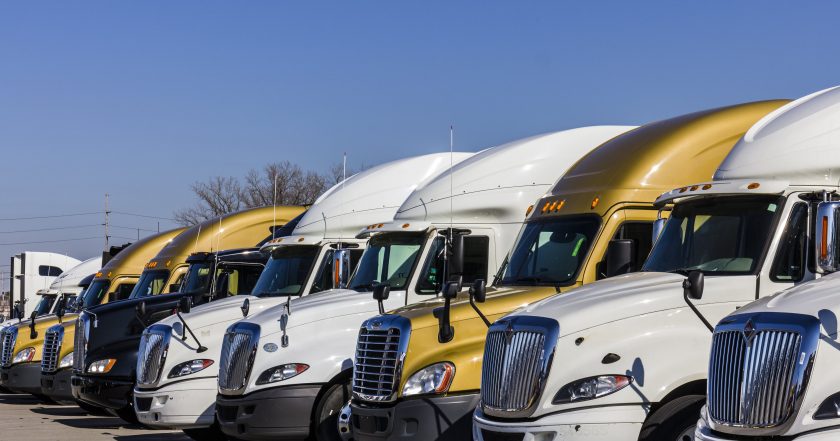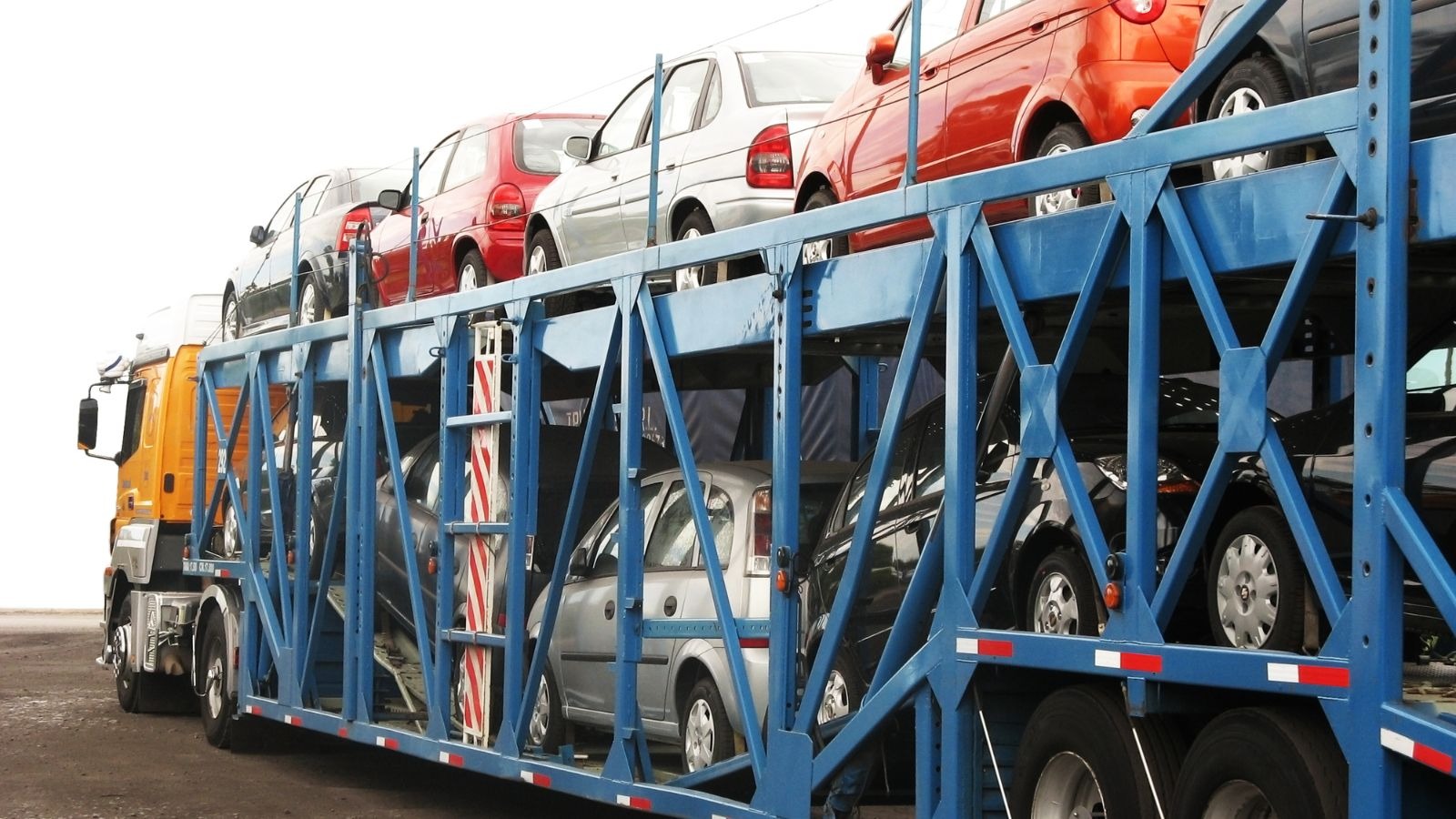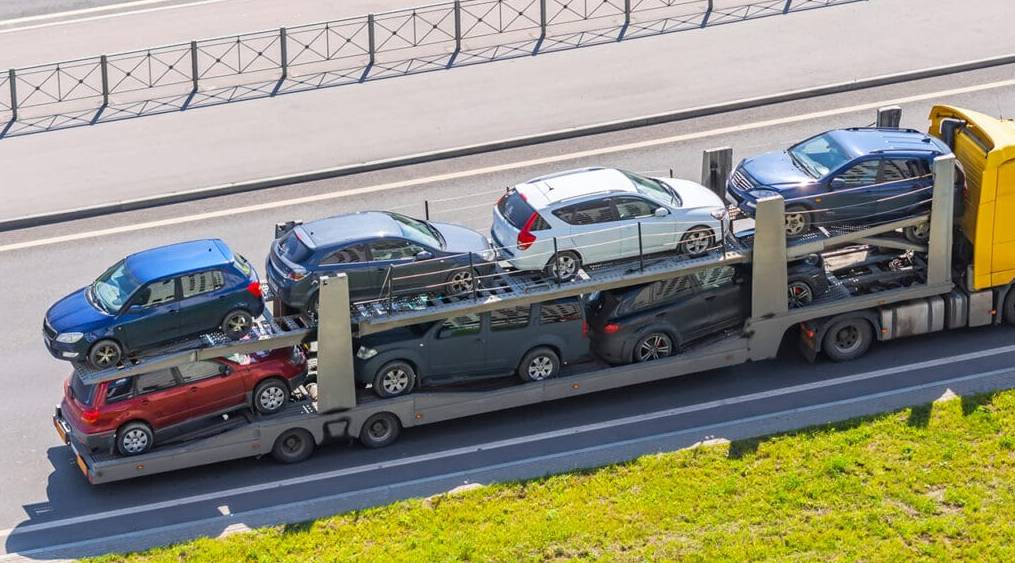With numerous auto transport trailer options available, determining which one best fits your needs can add to the stress of shipping a car.
While, in most cases, clients ship their vehicles using the method their auto transporter suggests, learning about the different options in the automotive transport industry can be beneficial. This knowledge allows clients to make informed decisions when shipping their vehicles in the future.
This guide showcases the several types of car transport trailers, explaining the features, advantages, and disadvantages of different types and illustrating how to choose the right auto shipping trailer. We’ll cover the following points:
Why choose the right auto-shipping trailer?
Types of auto shipping trailers, features, pros, and cons
- Open trailers
- Enclosed trailers
- Flatbed trailers
- Lowboy trailers
- Gooseneck trailers
Different trailers capacities
- Single-vehicle single-level trailers
- Multi-vehicle single-level trailers
- Multi-vehicle multi-level trailers
Choosing the right auto-shipping trailer
- Factors to consider
- Selecting the right auto-shipping company
Final thoughts and recommendations
Why Choose the Right Auto Shipping Trailer?
Selecting the trailer that perfectly caters to clients’ needs is crucial to avoid inconveniences during auto transport. However, car owners must understand the features of different types and learn their differences to make an informed decision.
Choosing the right auto-shipping trailer ensures the vehicle’s safety and provides the best value for the price. Car owners will also have peace of mind, knowing that their vehicles are in good hands.
Not all car transport trailers can hold different types of vehicles, like heavy equipment, oversized vehicles, or non-running cars. Therefore, familiarizing oneself with the features of different trailers can help one identify which trailer would be the most suitable for transporting a specific type of vehicle.
Types of Auto Shipping Trailers, Features, Pros & Cons
Clients can choose between open or enclosed auto shipping when they ask for a car shipping quote or require an auto transport service. Open and enclosed auto transport are the standard options in the auto shipping industry, but there are other subtypes with minor differences. Here are the features, pros, and cons of each option:
Open Trailers
The standard and most common auto transport option is shipping vehicles on an open-air carrier. Open trailers come in different sizes, shapes, and loading capacities. However, all open trailers share one common feature: they have no shielding sides or roofs.
In addition, open trailers are lightweight, which makes them more fuel-efficient and, as a result, more cost-efficient. They can also transport vehicles of different sizes and shapes, including non-running, large, or high cars, since they allow easy and simple loading and unloading.
Indeed, auto dealers and manufacturers mostly use this type of trailer for hauling freight to clients in different states. Open trailers can haul anywhere from 3-4 vehicles per shipment, up to 12 vehicles.
Quick Overview of the Pros and Cons
The pros of open trailers can be summarized in the following list:
- Affordability
- Widespread availability
- Faster and more timely deliveries
- Large capacity to ship multiple vehicles at a time
- Easy loading and unloading of vehicles
However, there are also some drawbacks of open trailers, as listed below:
- Exposure to the elements, inclement weather, and road debris
- The reduced protection makes it unsuitable for transporting unique and luxury vehicles
Enclosed Trailers
Enclosed trailers are the opposite of open-air trailers in several aspects. First, enclosed trailers provide additional security and protection, as they come with protective walls and a roof. Enclosed trailers’ walls and roofs can be hard-sided, the more popular type, or soft-sided, which is easier for loading and unloading vehicles.
Second, enclosed trailers are heavier than open trailers and consume more fuel, adding to the shipping cost. Regarding loading capacities, enclosed trailers can carry fewer cars than open trailers. Additionally, several types of enclosed trailers have various cargo capacities. Some can carry one or two cars, while others have additional room to haul up to 6 cars at a time.
Pros and Cons of Enclosed Trailers
Like all the different types of car transport trailers, shipping cars with enclosed trailers offers a set of advantages:
- Optimal car safety and protection
- Vehicles are delivered in showroom condition
- Enhanced cargo stability
- Temperature control systems
- Perfect for high-end vehicles
- Total privacy guaranteed
Though enclosed trailers bring about great advantages, they still have some drawbacks:
- An expensive method of auto transport
- Less availability
- Slower deliveries
- Restrictions on specific vehicle types
Flatbed Trailers
Flatbed auto transport trailers are like open trailers, except for minor differences. A standard flatbed trailer has a raised bed without cages, pulled by a semi-truck, making it a go-to option for shipping large, heavy, inoperable cars, RVs, and boats.
Moreover, flatbeds are usually single-level trailers without additional rows. However, shipping vehicles, especially heavy equipment, with flatbed trailers could cost more than open trailers. Regarding the trailer’s capacity, flatbeds can haul up to 4 vehicles simultaneously.
Flatbed Trailers Pros and Cons
A flatbed trailer provides these benefits:
- Easy loading and unloading
- Shipping inoperable and heavy vehicles
The cons of flatbed trailers are:
- More expensive
- Reduced vehicles protection
- Exposure to road elements
Lowboy Trailers
Lowboy trailers, also known as drop deck trailers, have a unique design in which the trailer’s bed can be lowered to the ground to allow for easy loading and unloading of vehicles. Lowboy trailers can efficiently support heavy-duty and commercial vehicles. However, they are more expensive than standard options and expose cargo to external elements.
Gooseneck Trailers
A gooseneck trailer, named after its uniquely designed gooseneck hitch, allows for larger loads without height restrictions. Gooseneck trailers can be attached to heavy-duty trucks carrying heavy and commercial equipment for long distances.
Additionally, gooseneck trailers can stabilize the load over long distances and haul between 2-3 cars simultaneously. Still, a gooseneck trailer has a complex setup and requires specialized loading and unloading equipment.
Different Trailer Capacities
The different trailer types with diverse designs and features also have different load capacities. Auto transport trailers can only accommodate a single vehicle or have two levels for more vehicles.
Single-Vehicle Single-Level Trailers
As the name suggests, single-vehicle single-level trailers are designed for shipping one single vehicle at a time, providing a more customizable auto transport option. Single-vehicle single-level trailers can be open or enclosed, carrying up to 2 vehicles.
This option is intended for short-distance moves. However, they are sometimes used to ship a vehicle for long distances and are also used for expedited auto shipping services.
Furthermore, enclosed single-vehicle trailers provide a white-glove auto transport service for unique, exotic, or rare cars. Still, this is the most expensive trailer type since they haul only one or two vehicles for the entire journey.
Multi-Vehicle Single-Level Trailers
These trailers can accommodate more cars than the single-vehicle option, hauling between 4-6 vehicles. Multi-vehicle single-level trailers are less expensive than the previous option, yet they are considerably expensive.
Single-level trailers provide a safer and more secure option for shipping cars since there is no risk of anything stacked on them during transport. They are also ideal for expedited shipping and are highly maneuverable on narrow streets, making them a suitable option for door-to-door services.
Multi-Vehicle Multi-Level Trailers
This is the standard and most popular trailer type, especially for open trailers. Vehicles are stacked in two rows on top of each other in a multi-level trailer. This trailer is also the most affordable option due to the significant number of cars it can haul, typically between 10-12 cars.
Multi-level trailers are also the standard auto shipping option for most auto dealers and manufacturers. Hence, regular and medium-sized vehicles are usually transported with these trailers.
Choosing the Right Auto Shipping Trailer
After learning about the available auto transport trailers and their features, clients can choose the trailer that best matches their vehicles’ specifications and needs, considering certain factors.
Factors to Consider When Choosing an Auto Shipping Trailer
The most crucial factors in determining which trailer is best for a vehicle include the car owner’s budget, vehicle type, shipping times flexibility, and distance.
For instance, standard open trailers are typically the most cost-effective option for those shipping regular vehicles on a tight budget. As for those transporting luxury or high-value vehicles, enclosed trailers offer extra protection from potential damage during transit.
Still, choosing an open or enclosed trailer depends on the vehicle type, whether it is a regular or a very expensive vehicle that needs special protection. In addition, if clients are looking for fast deliveries, they may opt for regular trailer options since they are more popular, accessible, and available.
Moreover, the distance of the journey affects the final quote. For example, choosing a single-level trailer for moving a vehicle long distances could be costly.
Most importantly, remember to factor in the vehicle’s weight, height, and width to check whether it fits in any regular trailer or needs to be specifically transported with a lowboy or flatbed trailer. Finally, the car’s operable or inoperable condition could also create limitations in choosing a trailer.
Selecting the Right Auto Shipping Company
Choosing the right trailer for a vehicle is not enough if the auto transporter lacks the required efficiency to keep the car safe when loading, unloading, and transporting it.
This is why we always recommend clients seek reliable, experienced, and licensed auto shipping companies, and Tempus Logix is a great example. In addition to being licensed and bonded with the FMCSA and USDOT, Tempus Logix has an extensive network of carriers to meet the specific needs of different clients. The company also has over eight years of experience in the auto hauling industry, and the staff is highly qualified to provide top-notch auto transport services.
Final Thoughts and Recommendations
Choosing the right auto transport trailer for vehicles from the start of the auto shipping process could save clients a lot of time and effort. While learning about the available trailer types can help clients make more informed decisions, they need to consult their auto shippers since they have better knowledge and experience in different trailers and vehicles. Car owners should research to select a reliable auto shipping company for a hassle-free auto transport experience.






